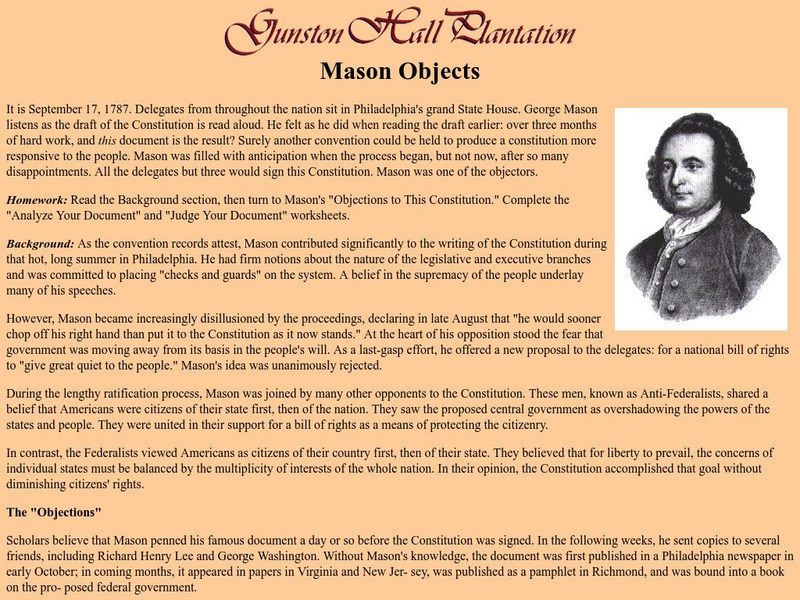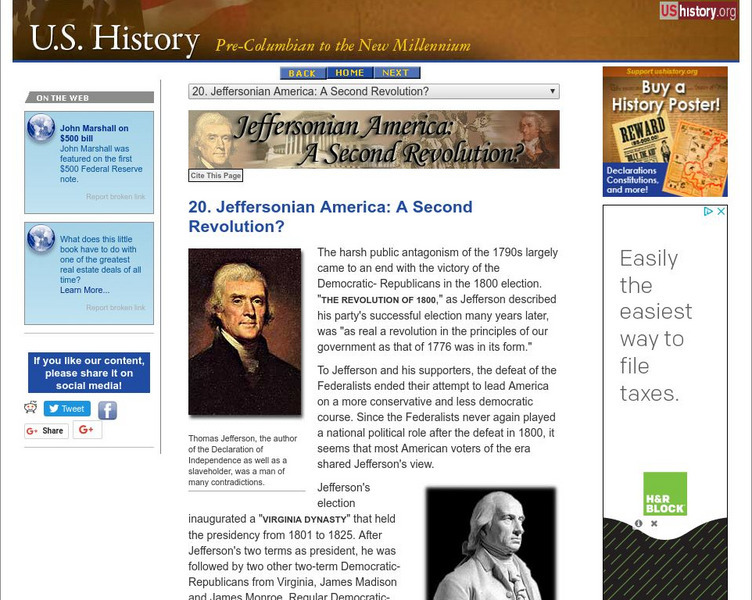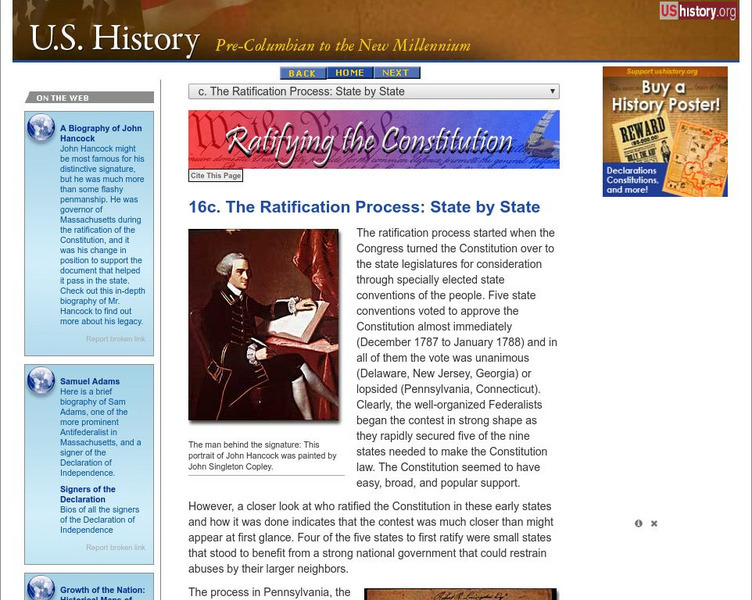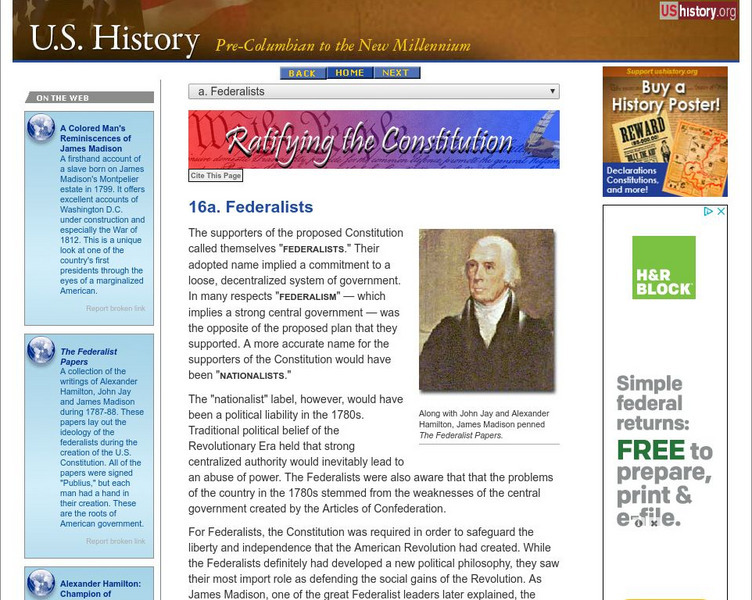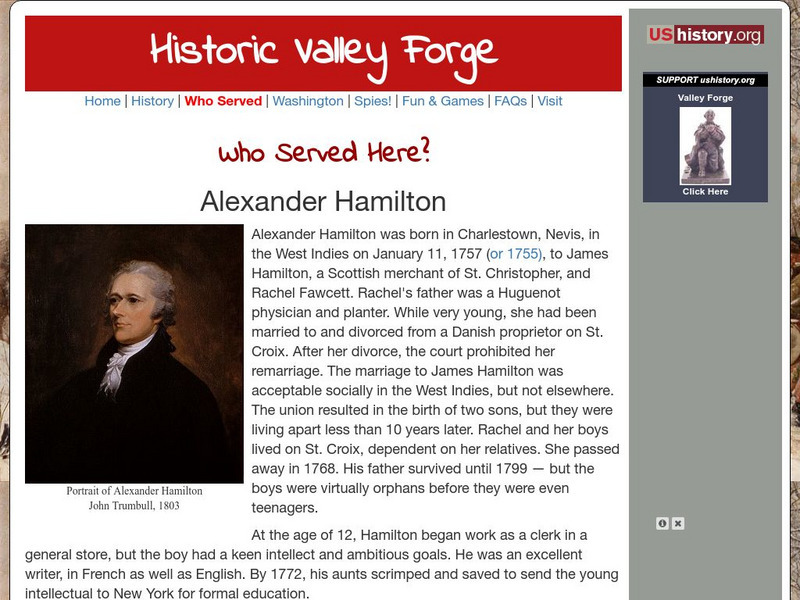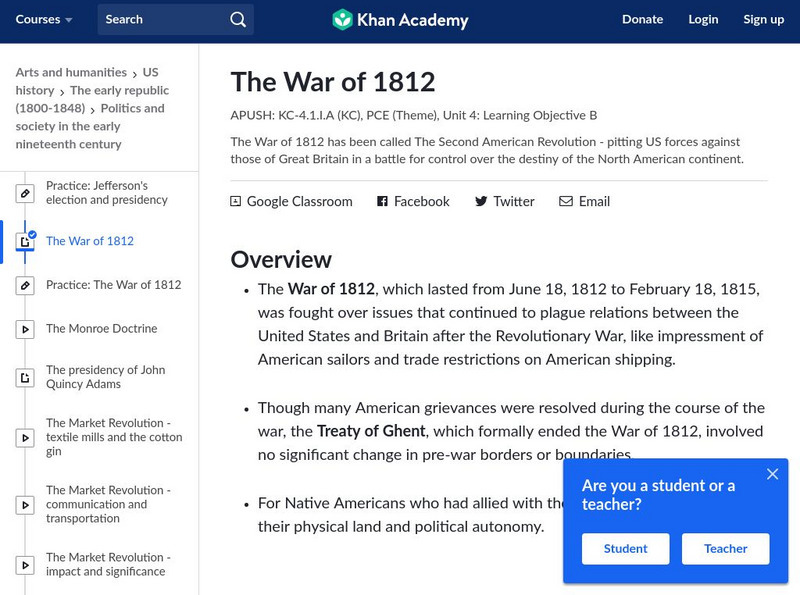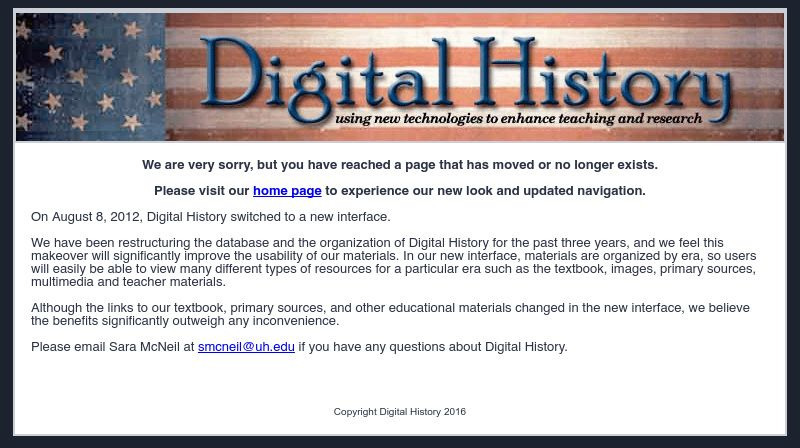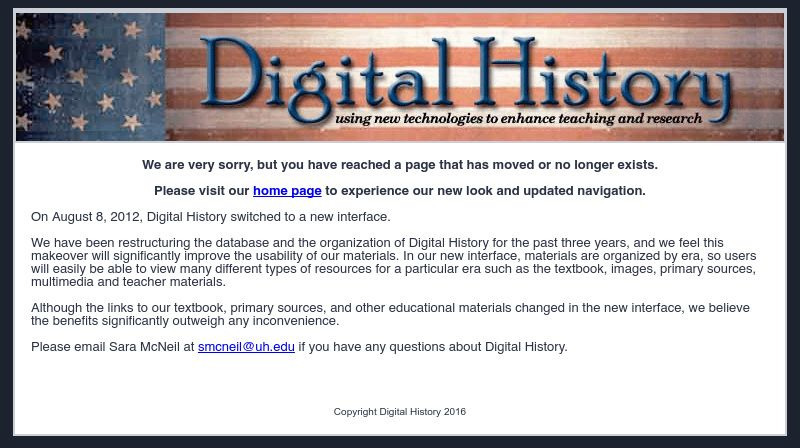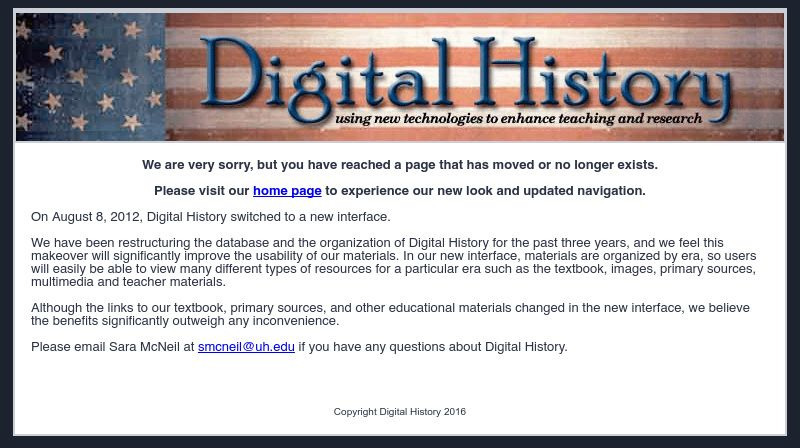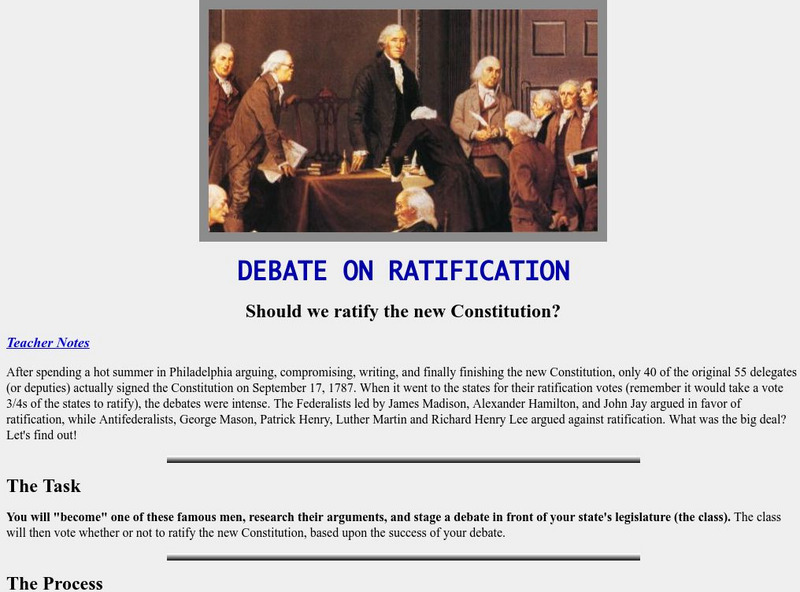Other
Gunston Hall Plantation: Mason Objects
In this set of activities, students learn what George Mason's objections were to the U.S. Constitution. They then evaluate them through a class discussion and divide into groups to hold a debate about the disagreement between the...
Ibis Communications
Eye Witness to History: Washington d.c. 1800
This article offers personal accounts from Abigail Adams regarding her journey and arrival in the new national capital.
Independence Hall Association
U.s. History: Gabriel's Rebellion: Another View of Virginia
Gabriel Prosser, a skilled slave, planned a revolt as a way to carry out the ideals of the American Revolution and give freedom to slaves. Read about what his vision was, what group of white men might be helpful to his cause, and what...
Independence Hall Association
U.s. History: The Election of 1800
The election of 1800 was momentous for many reasons. Read about the defeat of John Adams and his Federalist policies, and see how Thomas Jefferson became president because of a crucial vote by a Federalist.
Independence Hall Association
U.s. History: Jeffersonian America: A Second Revolution?
Read about the peaceful "revolution" that occurred in the election of 1800 when the party in power, the Federalists, was defeated in a democratic election by the Democratic-Republicans. See how this showed that the ideals of the new...
Independence Hall Association
U.s. History: Two Parties Emerge
Although George Washingon denounced the creation of political parties, they came roaring into play in the election of 1796 in which John Adams, representing the Federalists, ran against Thomas Jefferson, who represented the...
Independence Hall Association
U.s. History: The Antifederalists' Victory in Defeat
By 1788 eleven states ratified the Constitution, more than enough to put it into effect as the document establishing rules for the nation. Read about the goals of the Federalists in estabilishing a national government and find out how...
Independence Hall Association
U.s. History: The Ratification Process: State by State
The ratification of the Constitution was placed at the hands of the state legislatures. Read about which states supported the ratification, which were opposed, and why. Find out why, even after the requisite number of states had voted...
Independence Hall Association
U.s. History: Federalists
A brief look at the men who supported the new Constitution and the reasons they supported it.
University of Virginia
Miller Center at Uva: u.s. Presidents: Thomas Jefferson: Domestic Affairs
Read about Thomas Jefferson's attempts to make a smaller bureaucracy and his problems with the federal courts.
Independence Hall Association
U.s. History: Historic Valley Forge: Major General Alexander Hamilton
A short biography of Alexander Hamilton containing information on his military service during the American Revolution as well as his later life in politics.
Khan Academy
Khan Academy: The Election of 1800
This Khan Academy resource provides and overview of the issues surrounding the Election of 1800.
Khan Academy
Khan Academy: The War of 1812
This Khan Academy resource provides information about the War of 1812, including the surround issues before and after the fighting of it.
Varsity Tutors
Varsity Tutors: Archiving Early America: Alien and Sedition Acts
This article from Archiving Early America provides an explanation of the Naturalization, Alien, Alien Enemies and Sedition Acts, shows the original acts and provides transcribed texts of the Alien Enemies and the Sedition Acts.
The Dirksen Congressional Center
Congress for Kids: Ratifying the Constitution
The process for ratifying the United States Constitution is explained in simple terms. Suggestions for research projects, resource links, and some activities are included. The rest of the site has lots more information on the U. S....
Digital History
Digital History: The War's Significance
Find out why the War of 1812 was such a significant victory for the fledgling United States. See how it resulted in greater territory for expansion, and why it brought about the demise of the Federalists.
Alabama Learning Exchange
Alex: Constitution or Articles?
In this lesson, students will observe the political climate at the time of the Constitutional Convention of 1787, and read the writings of the delegates who refused to sign the proposed Constitution, as well as those who supported it....
American Presidency Project
American Presidency Project: Election of 1796
Online resource that provides data for the presidential election of 1796 won by Federalist nominee, John Adams.
Digital History
Digital History: The Birth of Political Parties
A brief look at the beginning of political parties in the new American nation. Find out the views of the two parties.
Digital History
Digital History: Election of 1796
The election of 1796, a test of the new government's transfer of power, was not without intrigue. Read a brief account of the election and its results.
Schools of California Online Resources for Education
Score: Debate on Ratification
Students become one of the famous men who argued for or against ratification of the Constitution. They research and present their argumets to the class, who will then vote whether or not to ratify the new Constitution.
University of Oregon
Intro to u.s. Politics: Anti Federalist and Federalist Models of a Republic
In chart form, review the major differences between the political ideas of the Federalists and the Antifederalists, including a comparison on the nature of representation, sovereignty, legislative deliberation, governmental legitimacy,...
History Teacher
Historyteacher.net: The Early Republic: Quiz (2)
This 10-question multiple choice quiz is immediately scored and covers events in the late 1700s.
Independence Hall Association
U.s. History: The Second War for American Independence
The War of 1812 has been called the Second War of Independence. Find out about one of the causes of the war, and read about the possible plans for secession by the New England states, which opposed the war.


